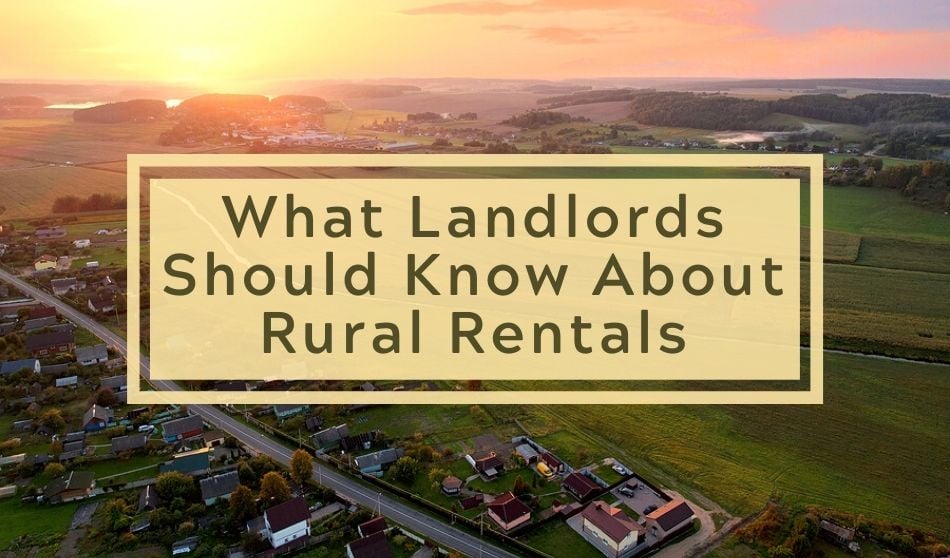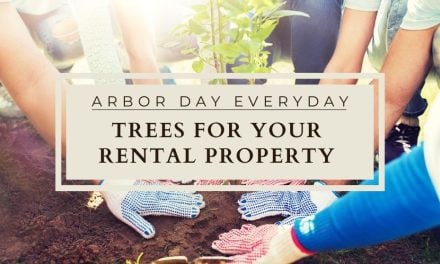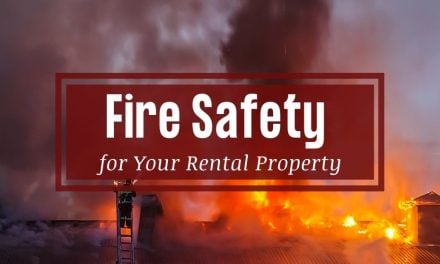
Investing in a rural rental property is a tempting proposition for many landlords. There are a variety of benefits that come with investing in a rural rental property, but also different issues that landlords coming from urban areas may not know about. Before purchasing rural property, you need to be aware of what you are getting into.
Turnover and Vacancy
Buying rural property is going to have both pros and cons. Fortunately, one of the benefits is that properties in rural areas are generally less expensive in rural areas than in urban. There is also a lower population. The lower population means that there will be less competition with you from other landlords or property managers. Tenants will also tend to stay with you longer, which leads to less turnover.
The flip side of this is that, once your tenants move out, it can be much more difficult to find tenants to replace your old ones. However, a good way to mitigate this problem is to build a solid network and reputation in your area. This way, information about you can be spread by word of mouth, if nothing else.
Septic Systems
If you have only had experience with urban properties and locations, then you may not be familiar with septic systems. In the city, public sewer systems take care of the waste from urban homes, and you would only need to worry about the condition of the plumbing inside the home. Septic systems require different care and you may need to be more involved with their upkeep.
Most rural properties are not connected to a sewer line at all and each one has its own septic system. Septic systems can malfunction or get blocked and these issues become your responsibility. When determining your budget for a rural property, be sure to plan on septic maintenance and pumping. The septic should also be checked before you purchase a property by a septic engineer to find out its condition, how it has been maintained, and whether there are any issues.
When tenants move into your property, it is important to make sure that they know how to properly treat a septic system. The septic is connected to the house via drains, toilets, and garbage disposals. A solid rule of thumb is that if it isn’t quickly biodegradable then it should not be put into the septic. This also includes fats and grease, chemicals, and paper materials like diapers or paper towels.
Well Water
Wells are another rural property staple that you may not know about if you come from an urban area. Instead of getting water from the city, each property has its own well and produces its own water. Before you purchase a property, the well and water should be inspected to make sure the well produces enough water for your needs and that the water is suitable.
A new well may be needed for the property if the water supply is too limited or the water pressure is too weak. A professional water engineer can evaluate the well and determine the adequacy of the water supply. Testing the water determines if it has chemical contaminants like certain bacteria, nitrates, or ions. If that is the case, a filtration system may be able to solve it.
Check the well permit and local water regulations for the property so you know what your tenants can use your water for.
Learn more: Septic System Basics for Landlords, Property Managers, and Investors
Property Boundaries
With any rural property, you need to be sure that you know where the property lines are. This is especially relevant if the property has a decent amount of land. There is a bigger potential for issues with boundary lines and easements. When purchasing rural property, hire a surveyor to determine where exactly the lines are. The survey can also show if anyone else has permission to use the land via an easement, or whether a neighbor’s shed is unintentionally located on your property.
Seasonal Outdoor Maintenance
Depending on how big your rural property is and what it has on it, outdoor maintenance is going to be a bigger concern. For example, a large lawn during the summer is going to need to be mowed about once a week, occasionally more depending on the growth rate of the grass. During the summer, outdoor maintenance is not just an aesthetic concern but is vital to ensure your property is safe from wildfire risk.
If the property has fruit trees and you intend to keep them, you need to be sure to stay up to date on their maintenance. Each type of fruit tree has its own needed maintenance that you should make sure to be aware of. Typically, trees will need to be pruned and sprayed in the early spring before they produce in the summer and early fall. Once the fruit begins to fall, it should be picked up. Otherwise, it will start to rot, look unpleasant, and potentially bring in pests and diseases.
During the winter, be sure to prep your property so you can prevent burst pipes, fallen trees, and snow and ice buildup. Your tenants can assist with this, especially if you remind them about their responsibilities for clearing snow and de-icing.
Investing in a rural rental property can have its benefits, but investors should fully understand the ins-ins and outs before committing to a property outside an urban area.





